Engineering Design

Educators and Parents, Sign Up for The Cheat Sheet
Weekly updates to help you use Science News Explores in the learning environment
Thank you for signing up!
There was a problem signing you up.
-
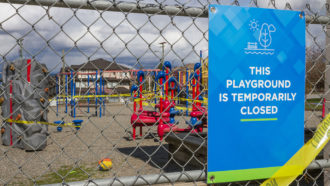 Science & Society
Science & SocietyCoronavirus lockdowns may have avoided 531 million infections
Studies find big benefits from global coronavirus lockdowns. More than a half a billion of the potentially deadly infections appear to have been avoided.
-
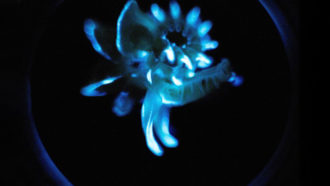 Chemistry
ChemistryThis tube worm’s glowing slime may help sustain its own shine
Snot oozed by a marine tube worm can glow for up to 3 full days. The secret of how this works might lead to long-lasting lights that glow on and on.
-
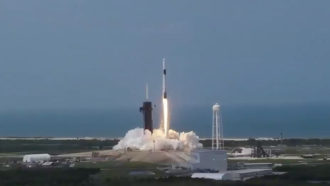 Space
SpaceA first: Commercial rocket takes humans into space
Two NASA astronauts aboard the privately built Crew Dragon capsule are the first to be sent into orbit from U.S. soil since 2011.
-
 Planets
PlanetsPlanets with hydrogen skies could harbor life
Microbes can live in a hydrogen atmosphere. This points to new space worlds that host alien life.
-
 Environment
EnvironmentFossil fuels appear to release far more methane than we thought
Ice cores reveal less methane than expected. This suggests today’s fossil fuel industry is responsible for nearly all of the methane emissions from natural sources today.
-
 Science & Society
Science & SocietyCO2 emissions have nosedived as COVID-19 keeps people home
The COVID-19 pandemic restricted travel that can pollute the air. By April, travel-related daily emissions of greenhouse gases was back to 2006 levels.
-
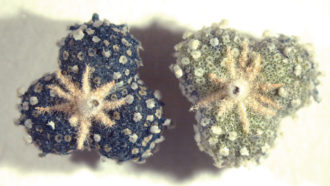 Chemistry
ChemistryAncient recipes helped scientists resurrect a long-lost blue hue
Led by medieval texts, scientists hunted down a plant and used its fruit to make a blue watercolor with mysterious origins.
-
 Tech
TechSweat tech alerts athletes when to rehydrate — and with what
Technology shows how the body responds to moderate and vigorous exercise. That helps athletes stay healthy — and helps scientists understand why.
-
 Tech
TechWhy sports are becoming all about numbers — lots and lots of numbers
Sports once focused on muscles, skill and tactics. Now math is becoming almost as important. It helps assess players — and improve their tools.
-
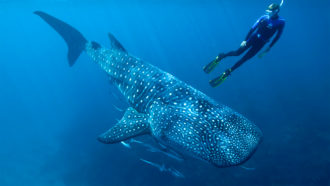 Animals
AnimalsTraces from nuclear-weapons tests offer clues to whale sharks’ ages
Traces left by nuclear-bomb testing in the 1950s and ‘60s can help researchers learn how old a whale shark is.
-
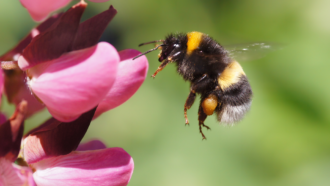 Environment
EnvironmentPesticides can have long-term impact on bumblebee learning
Pesticide-laced nectar and pollen can permanently harm the brains of baby bumblebees.
-
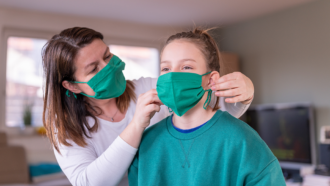 Physics
PhysicsScience offers recipes for homemade coronavirus masks
New studies provide data on what types of mask materials protect best against the virus that causes COVID-19. They also point to the value of a really snug fit.